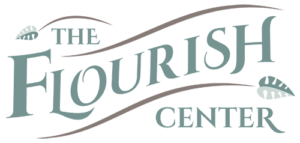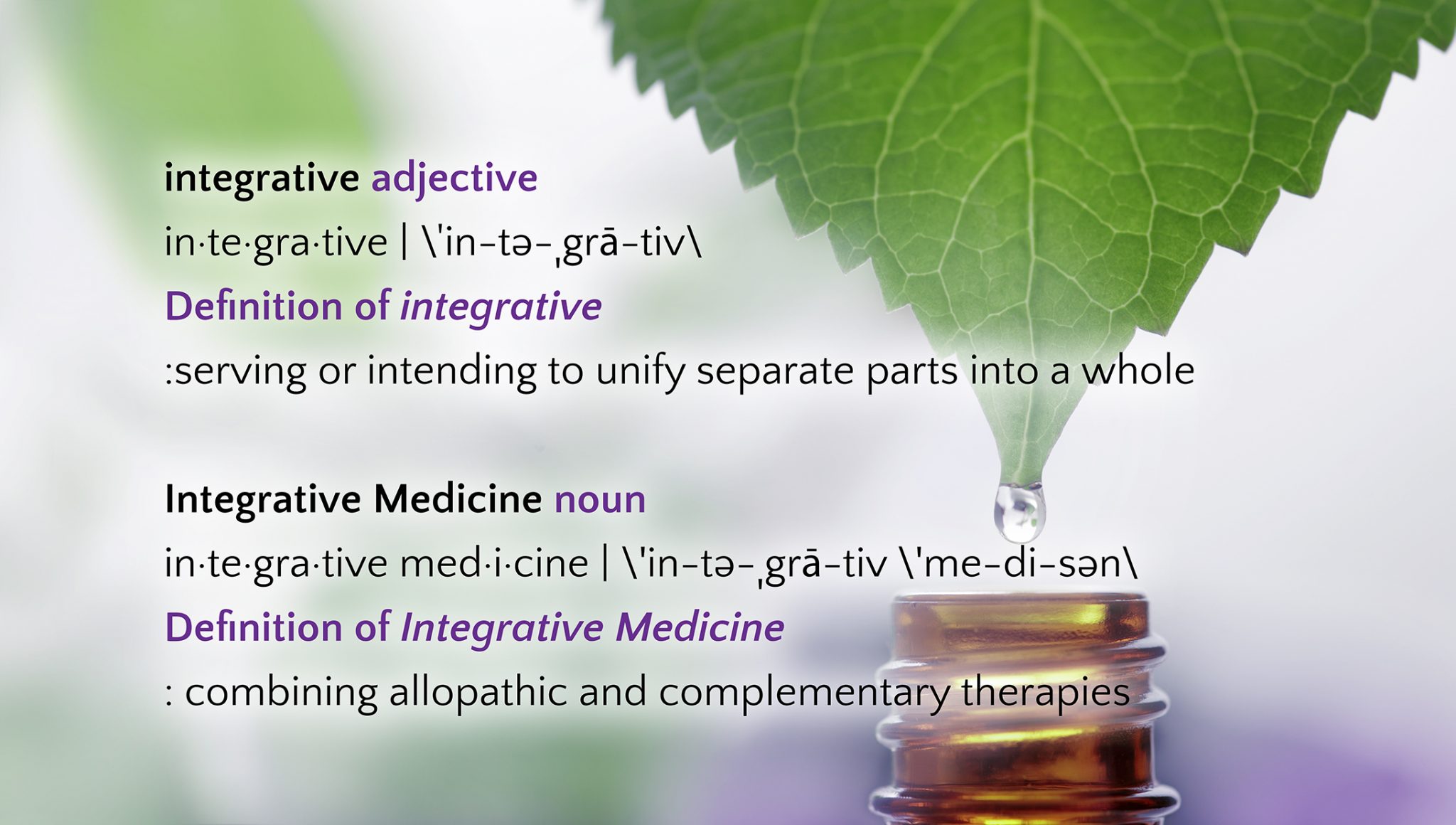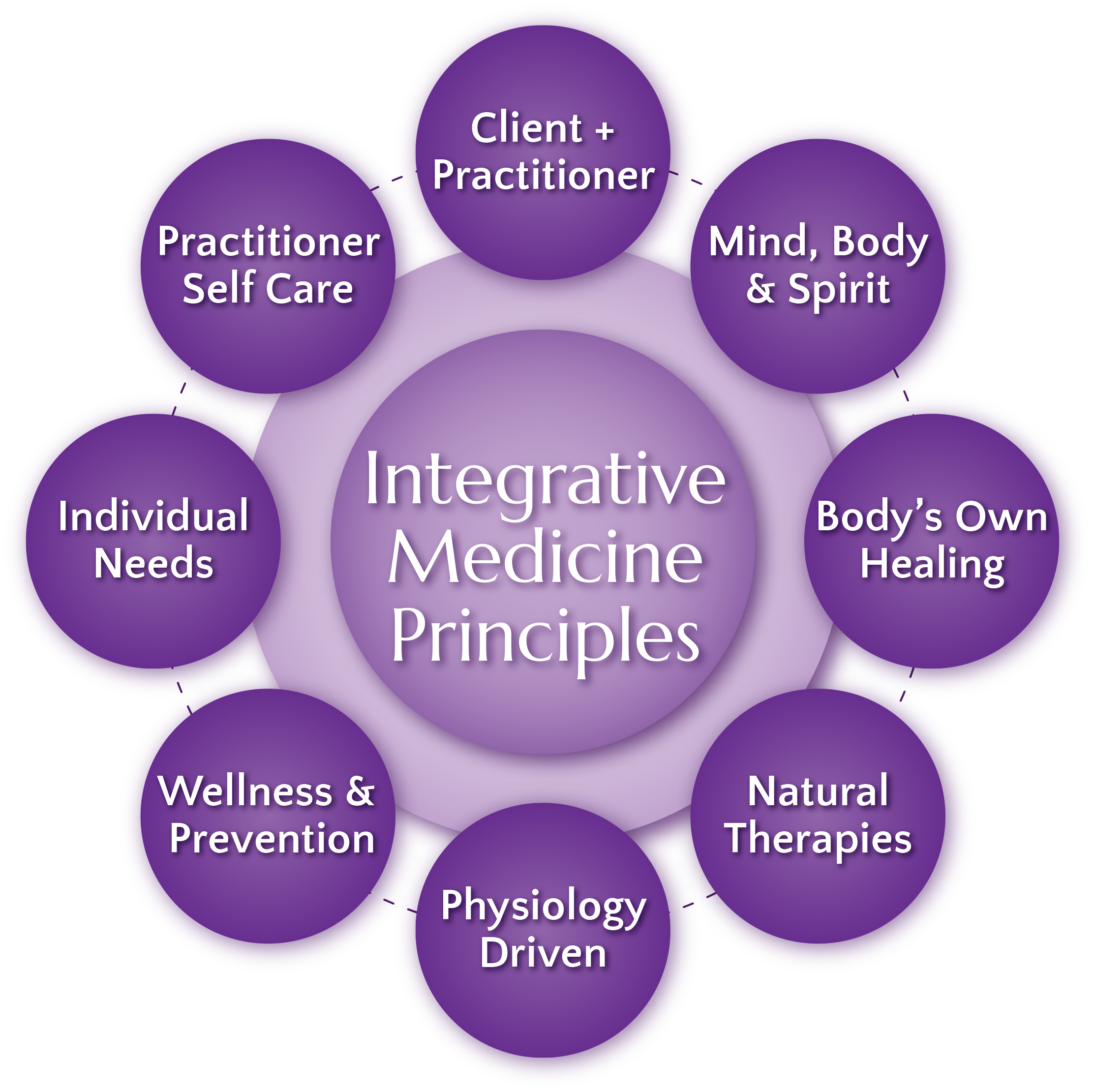Integrative is a word we hear more and more these days,
& it’s worth understanding why it’s showing up in the
fields of medicine, law & education.
Integrative is a word we hear more and more these days,
& it’s worth understanding why it’s showing up in the
fields of medicine, law & education.
The dictionary definition for integrative means:
“serving or intending to unify separate parts into a whole.”
The generally accepted definition for Integrative Medicine is:
“combining allopathic (conventional) and complementary therapies.”
Integrative medicine is grounded in the definition of health.
Well, what is health then?
The World Health Organization (WHO) defines health as:
“A state of complete physical, mental and social well being and
not merely the absence of disease or infirmity.”


Through personalizing care, integrative medicine goes beyond the treatment of symptoms to address all the causes of an illness. In doing so, the patient’s immediate health needs, as well as the effects of the long-term and complex interplay between biological, behavioral, psychosocial and environmental influences, are taken into account.

Integrative medicine is not the same as alternative medicine, which refers to an approach to healing that is utilized in place of conventional therapies, or complementary medicine, which refers to healing modalities that are used to complement allopathic approaches.

If the defining principles are applied, care can be integrative regardless of which modalities are utilized.
The Duke University definition for Integrative Healthcare is one of the most comprehensive and thorough definitions we’ve found about Integrative Medicine, and aligns with FLOURISH’s view and vision, for what we see as possible in the field of integrative and holistic medicine.
The Defining Principles of Integrative
Medicine As Defined By Duke Are:

The client and the practioner are partners in the healing process

All factors that influence health, wellness and disease are taken into consideration, including body, mind, spirit and community.

Providers use all healing sciences to facilitate the body’s innate healing response.

Effective interventions that are natural and less invasive are used whenever possible.

Good medicine is based in good science. It is inquiry-driven and open to new paradigms.

Alongside the concept of treatment, the broader concepts of health promotion and the prevention of illness are paramount.

The care is personalized to best address the individual’s unique conditions, needs and circumstances.

Practitioners of integrative medicine exemplify its principles and commit themselves to self-exploration and self-development.
Integrative Medicine at FLOURISH means:
Whole-Person Care
Functional Medicine
Herbal Medicine
Nutrition & Food Guidance
Holistic Pelvic Care™
Mindset Coaching
Energy Work
Body Movement
“Integrative Medicine is about finding the best solution
for the patient who’s right in front of me.”~Jen Owen, N.P.


